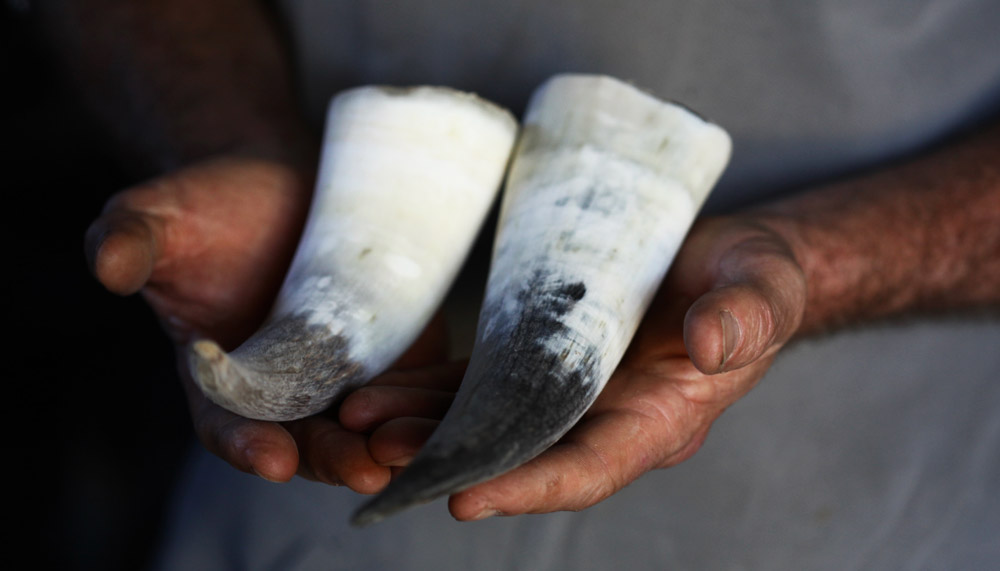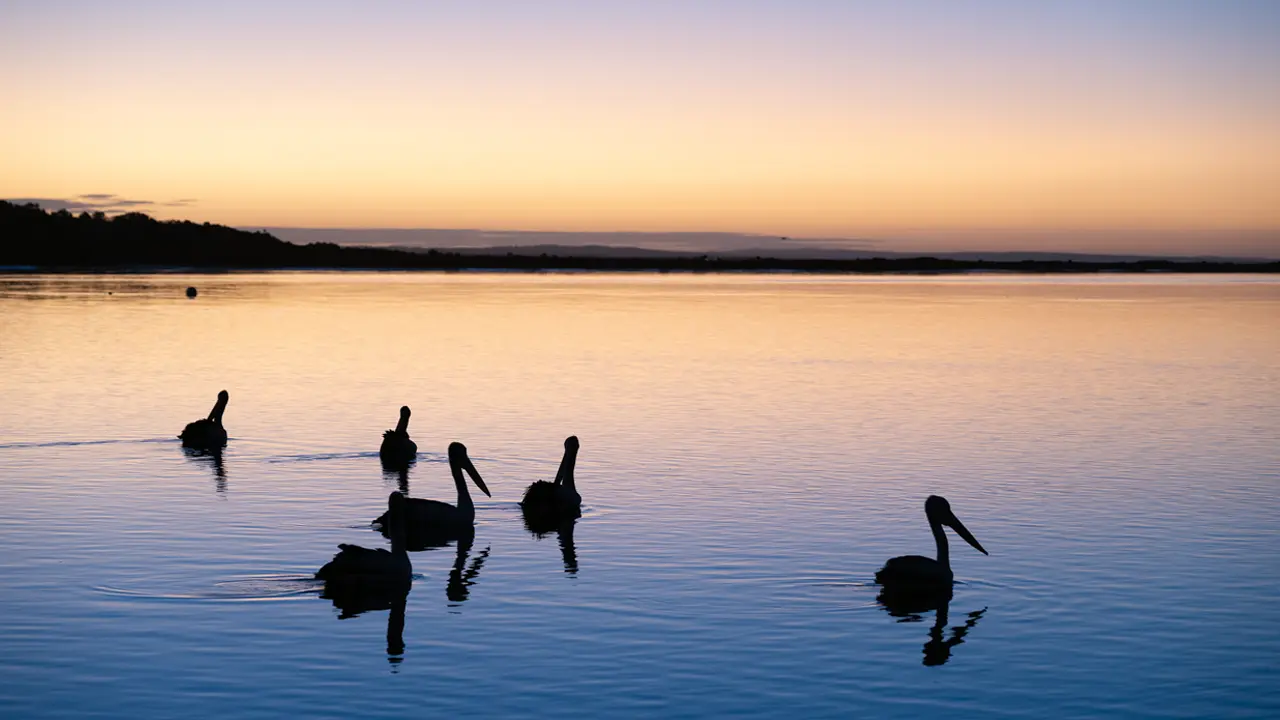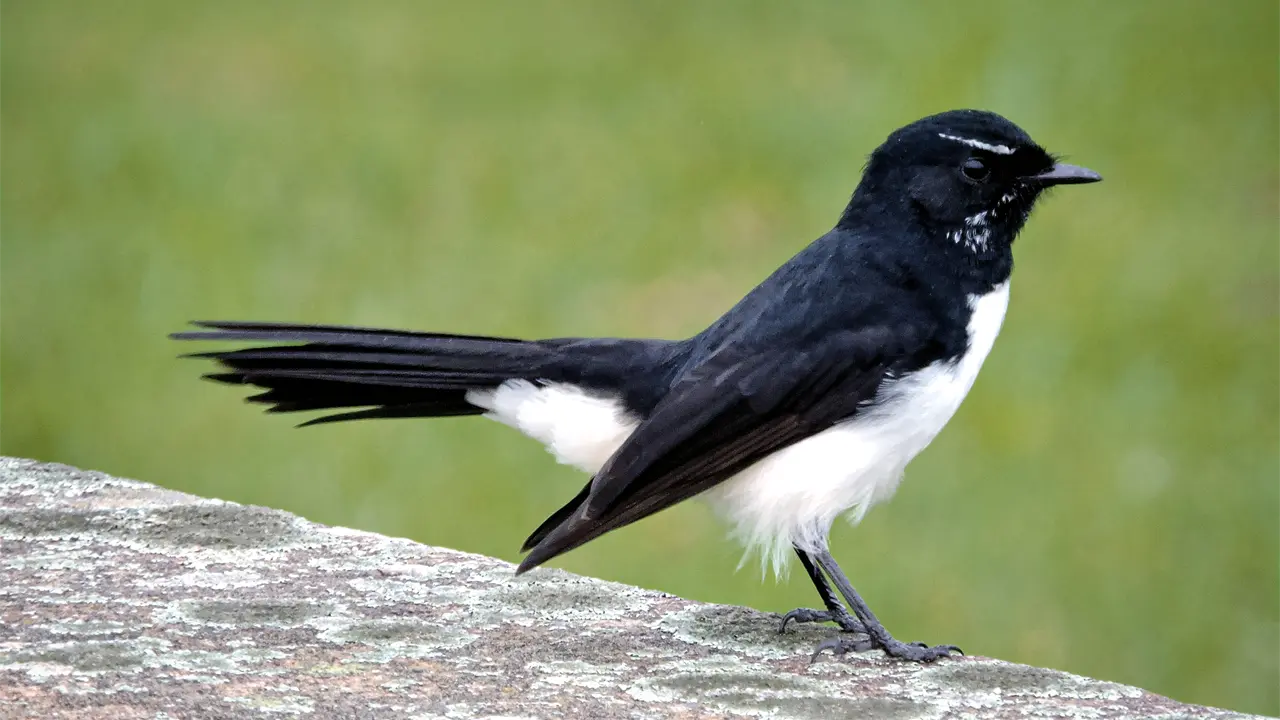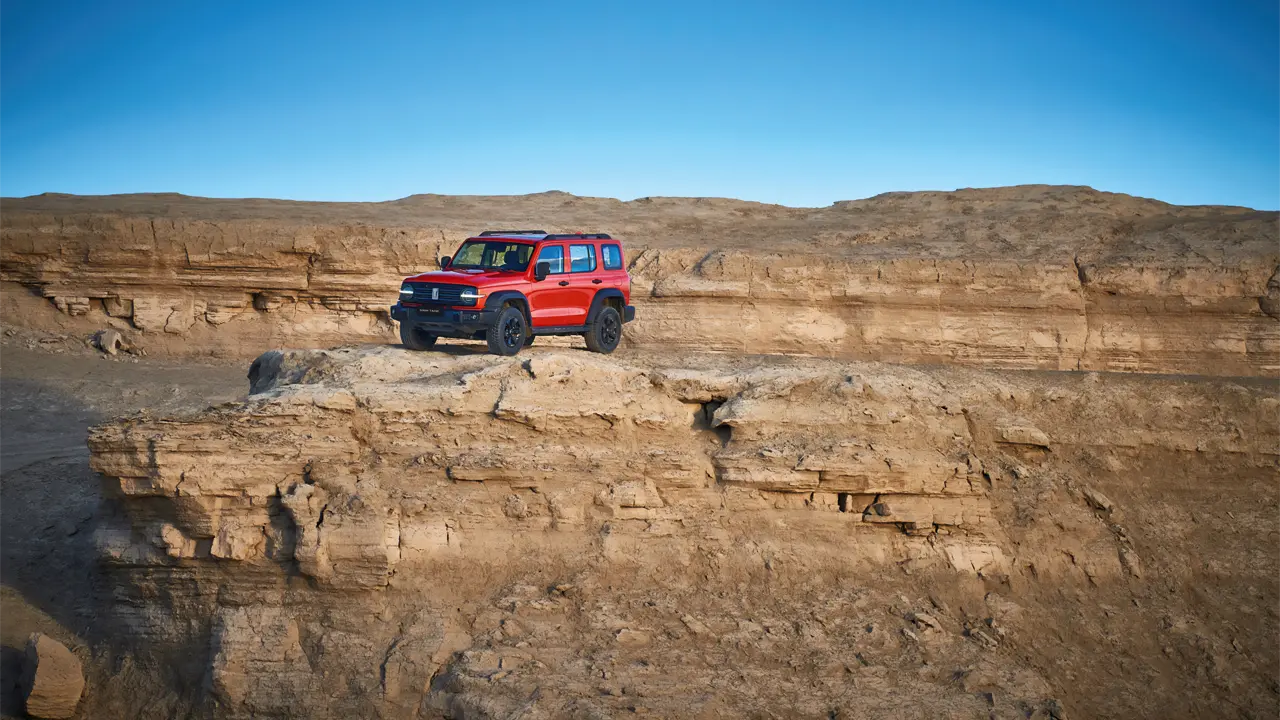As Australia’s only professional horner, master artisan Ross Plant has revived the medieval trade of horn work, crafting exquisite objects for decorative, ceremonial and domestic use.
Story + Photos Paula Heelan
The dirt road into Ross and Barbara Plant’s farm passes through a timber plantation, natural scrub, towering hoop pines and waterholes teeming with birdlife. Texas Longhorn cattle and sheep are grazing in paddocks. Closer to the homestead, the small mob of pigs, cackling chooks, an orchard and flourishing vegetable garden signal thriving self-sufficiency.
Outside his sprawling shed Ross is wearing an apron, earplugs, a mask and a face shield. Amid dust and din, he’s been intently polishing a horn on a sander. Hundreds of horns are scattered on the nearby ground. “I do the dusty, oily work out here and the finer work happens inside, away from any dust,” Ross says. Today, he’s making a traditional Scottish quaich, which has been ordered for a Scottish/Irish wedding. With two handles, it’s a ceremonial drinking vessel made for two to indicate trust. Known as a loving cup, and back in trend, it’s filled with a drink of choice, usually whisky.
Ross and Barb live in the Darling Downs region of south-east Queensland, where they raised their children, Adam and Gillian. Ross grew up on a cattle property in the foothills of the Bunya Mountains. His first 25 years of working life were spent as a cattleman, horseman and farmer. Today, the Plants grow food using the principles of permaculture, biodynamics and low-stress stock handling.
As Australia’s only professional horner, and trading as Crofters Craft, Ross supplies his work to galleries around Australia, attends lost trade fairs and makes traditional products on order.
His interest in crafting horn was triggered in 1986, when he began breeding Texas Longhorn. “I loved the colour and texture of the horns and wanted to find a use for them. When I heard John Trier, a skilled horner based in Beaudesert, was holding workshops, I decided to attend. When John retired, I bought some of his gear and stepped up my interest. At first, I just wanted to play with it – now I’m due for long service leave,” he says, laughing.
This story excerpt is from Issue #134
Outback Magazine: Dec/Jan 2021










